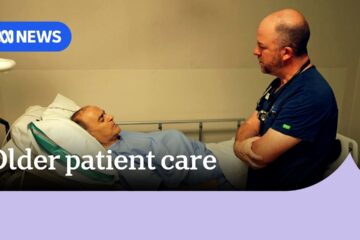
The Hidden Risk: Elderly Medication Use
Noah Shepherd | March 5, 2025
As we age, our health needs change, and medications often become a crucial part of maintaining our well-being. However, for many older adults, managing multiple medications can be complex and, at times, risky. From missed doses to harmful drug interactions, medication mismanagement is a growing concern that requires greater awareness and proactive solutions.
Why Medication Management Matters for the Elderly
The reality is that many elderly Australians take multiple medications daily. According to studies, nearly 50% of older adults take five or more different prescriptions— a phenomenon known as polypharmacy. While these medications are often essential, they can also lead to unwanted side effects, increased hospitalisations, and reduced quality of life if not managed properly.
Common Risks of Elderly Medication Use
- Adverse Drug Reactions (ADRs): Older adults are more vulnerable to medication side effects due to age-related changes in metabolism.
- Missed or Double Doses: Memory issues and complex schedules can lead to errors in medication intake.
- Drug Interactions: Some medications can react negatively with others, causing dangerous health complications.
- Dependence or Overmedication: Prolonged use of certain medications, such as painkillers or sedatives, can lead to dependence or decreased effectiveness over time.
Practical Tips for Safe Medication Use
Ensuring safe medication use doesn’t have to be overwhelming. Here are some practical steps for elderly individuals and their caregivers:
- Maintain an Updated Medication List: Keep a detailed record of all prescriptions, dosages, and schedules.
- Use Pill Organizers & Reminders: Tools like pill dispensers, phone alarms, and medication-tracking apps can help prevent missed doses.
- Regularly Review Medications with a Doctor or Pharmacist: A routine medication review can identify unnecessary or potentially harmful prescriptions.
- Understand the Side Effects: Being aware of common side effects can help seniors and caregivers recognize issues early.
- Avoid Self-Medicating: Over-the-counter drugs and supplements can interact with prescription medications, so consulting a healthcare provider before use is essential.
The Role of Caregivers & Families in Elderly Medication Safety
Family members and caregivers play a significant role in ensuring medication safety. By offering reminders, assisting with appointments, and monitoring for any unusual symptoms, they can help reduce the risks associated with improper medication use.
Medication is a key component of elderly healthcare, but it must be managed carefully to avoid unnecessary risks. Raising awareness, utilising available resources, and practicing safe medication habits can go a long way in ensuring the health and well-being of older Australians.
Sources:
- Australian Government Department of Health and Aged Care. “Home Medicines Review.” Home Medicines Review | Australian Government Department of Health and Aged Care
- Retire Australia. “Medication Management for Older Australians” Medication management for older Australians – RetireAustralia
- Pacific Angles Home Care. “Managing Medications for Seniors: 8 Essential Tips” Managing Medications for Seniors: 8 Essential Tips | Pacific Angels Home Care
- Elderly Guides. “Elderly Medication Side Effects: A Guide for Seniors & Caregivers” Elderly Medication Side Effects: Risks & Management
- Victoria Department of Health. “Medication” Medication | health.vic.gov.au



0 Comments